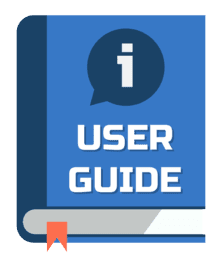Analysis of Knowledge, Motivation, and Benefits to Increase Community Participation in Waste Management; Case study in Pelangi Galaxy Waste Bank Bandung City
Abstract
Waste is one of the problems that is currently still a challenge that has not been resolved completely. Based on data from the Housing and Settlement Office published by West Java Open Data, waste production in Bandung City reached 1,529 tons per day in 2021. The daily waste production is the highest compared to other districts or cities in West Java Province. Currently, Bandung City is experiencing problems related to fires at the Sarimukti Landfill. This study aims to determine the level of knowledge, motivation and benefits to increase community participation in waste management. The location of this research is the Pelangi Galaxy Waste Bank Bandung City. The method used in this study was quantitative descriptive, with a total of 56 respondents. The results showed that the majority of residents have adequate knowledge about waste management, motivation, and understand the benefits of managing waste, followed by a high percentage in sorting waste. However, the percentage that utilizes waste banks to collect inorganic waste with economic value is still very lacking, as well as many who still do not know how to process organic waste into compost.
Keywords
Full Text:
PDFReferences
Adzawla, W., Tahidu, A., Mustapha, S., & Azumah, S. B. (2019). Do socioeconomic factors influence households’ solid waste disposal systems? Evidence from Ghana. Waste Management and Research, 37(1_suppl), 51–57. https://doi.org/10.1177/0734242X18817717
Bachtiar, H., Hanafi I, & M, R. (2015). Pengembangan Bank Sampah Sebagai Bentuk Partisipasi Masyarakat Dalam Pengelolaan Sampah (Studi Pada Koperasi Bank Sampah Malang). Jurnal Administrasi Publik, 3(1), 128–133. http://administrasipublik.studentjournal.ub.ac.id/index.php/jap/article/view/753
Fatrianingsih, R., Fitriani, L., Sufianti, E. (2022). Kang Pisman (Reduce, Reuse, and Recycle) Program Implementation Strategy for Waste Management in Sukamiskin Village Bandung City. Proceedings of the Third International Conference Administration Science, ICAS 2021. http://dx.doi.org/10.4108/eai.15-9-2021.2315199.
Iyoega, R. R., Trilestari, E. W., & Kirana, C. A. D. (2020). Collaborative Governance dalam Pembangunan Sektor Pertanian di Kabupaten Bandung. PERSPEKTIF, 9(1), 55–65. doi.org/10.31289/perspektif.v9i1.2864
Indrawati. (2019). Partisipasi Masyarakat Dalam Pengelolaan Sampah Berbasis Komunitas (Studi Kasus Bank Sampah Tri Guyup Rukun, Kabupaten Purworejo) | . | Journal of Politic and Government Studies. Journal of Politic and Government Studies, 8(02), 51–60. https://ejournal3.undip.ac.id/index.php/jpgs/article/view/23556
Lakioti, E. N., Moustakas, K. G., Komilis, D. P., Domopoulou, A. E., & Karayannis, V. G. (2017). Sustainable solid waste management: Socio-economic considerations. Chemical Engineering Transactions, 56, 661–666. https://doi.org/10.3303/CET1756111
Maryati, S., Arifiani, N. F., Humaira, A. N. S., & Putri, H. T. (2018). Factors influencing household participation in solid waste management (Case study: Waste Bank Malang). IOP Conference Series: Earth and Environmental Science, 124(1). https://doi.org/10.1088/1755-1315/124/1/012015
Pradana, W. (2022). Jabar X-Files: Tragedi 157 Warga Tewas Tertimbun Sampah Leuwigajah. In DetikJabar. https://www.detik.com/jabar/berita/d-6288321/jabar-x-files-tragedi-157-warga-tewas-tertimbun-sampah-leuwigajah
Prastiyantoro, A. D. (2017). Partisipasi Masyarakat Dalam Pengelolaan Bank Sampah Gemah Ripah Di Dusun Badegan Desa Bantul. Diklus: Jurnal Pendidikan Luar Sekolah, 1(2), 150–167. https://journal.uny.ac.id/index.php/jurnaldiklus/article/view/23865
Ramdani, E.M., Maasir, L., Artisa, R.A. (2020). Strategi Community Engagement Dalam Program Gema Madani Simpati (Gerakan Masyarakat Mandiri, Berdaya Saing dan Inovatif) di Kota Tasikmalaya. Moderat : Jurnal Ilmu Pemerintahan. 6 (4), 728-743
Ramdani, E.M. (2015). Koordinasi oleh BPBD Dalam Penanggulangan Bencana Banjir di Kabupaten Bandung. Jurnal Ilmu Administrasi : Media Pengembangan Ilmu dan Praktik Administrasi, 12 (3), 383-406.
Ratiabriani, N., & Purbadharmaja, I. (2016). Partisipasi Masyarakat dalam Program Bank Sampah: Model Logit. Jurnal Ekonomi Kuantitatif Terapan, 9(1), 228346. https://doi.org/10.24843/JEKT.2016.v09.i01.p06
Rifat. (2023). Imbas Kebakaran TPA Sarimukti, 7 Ribu Ton Sampah Menumpuk di Bandung. DetikJabar. https://www.detik.com/jabar/berita/d-6912700/imbas-kebakaran-tpa-sarimukti-7-ribu-ton-sampah-menumpuk-di-bandung
Rini, J. P., Sufianti, E., & Abdullah, S. (2021). Collaborative Governance Model Integrated Waste Management in Bandung City. Proceedings of the 2nd International Conference on Administration Science 2020 (ICAS 2020), 564(Icas 2020), 227–231. doi.org/10.2991/assehr.k.210629.043
Sufianti, E., Ramdani, D.F. (2020). Rintisan Social Enterpreneurship Dalam Menangani Permasalahan Sampah Rumah Tangga (Studi Kasus Bank Sampah Pelangi Galaxy) [Pioneering Social Entrepreneurship In Handling Household Waste Problems (Case Study Of The Pelangi Waste Bank)]. SeTIA MENGABDI : Jurnal Pengabdian Kepada Masyarakat, 1 (1), 39 – 47.
Tanuwijaya, F. (2016). Partisipasi Masyarakat Dalam Pengelolaan Sampah Di Bank Sampah Pitoe Jambangan Kota Surabaya. Kebijakan Dan Manajemen Publik, 4(2), 230–244.
Yuliana, I., & Wijayanti, Y. (2019). Partisipasi Masyarakat pada Program Bank Sampah. HIGEIA (Journal of Public Health Research and Development), 3(4), 545–555. https://doi.org/10.15294/HIGEIA.V3I4.30681
Refbacks
- There are currently no refbacks.
@2017-2024
Jl. Hayam Wuruk No. 34-38 Bandung
Politeknik STIA LAN Bandung
Powered by OJS (Open Jounal Systems)


